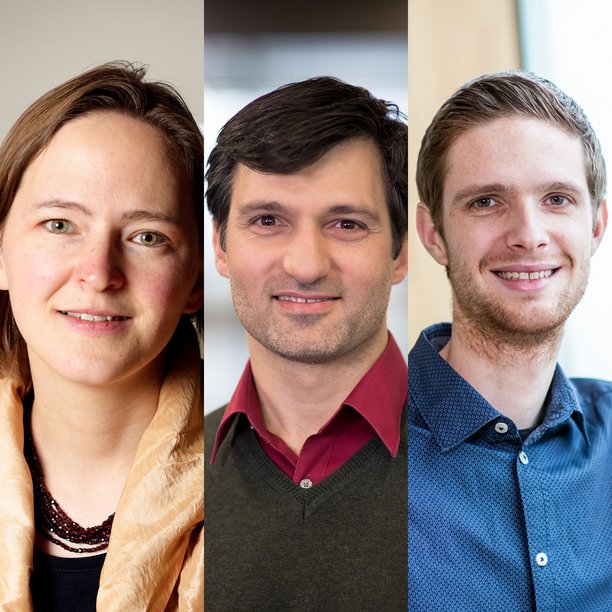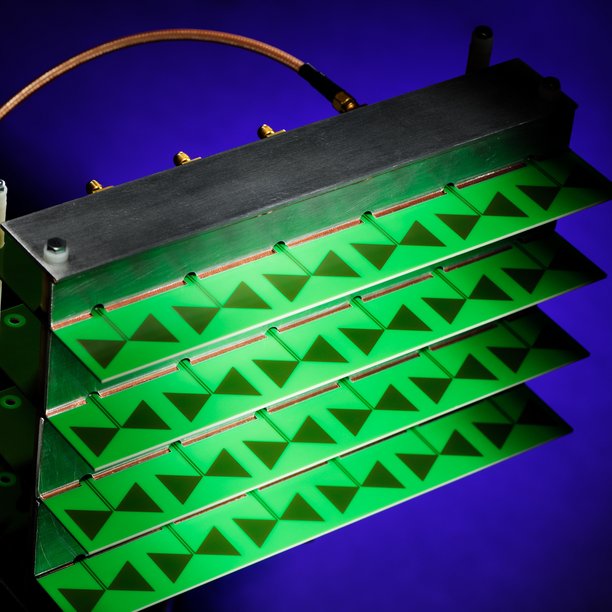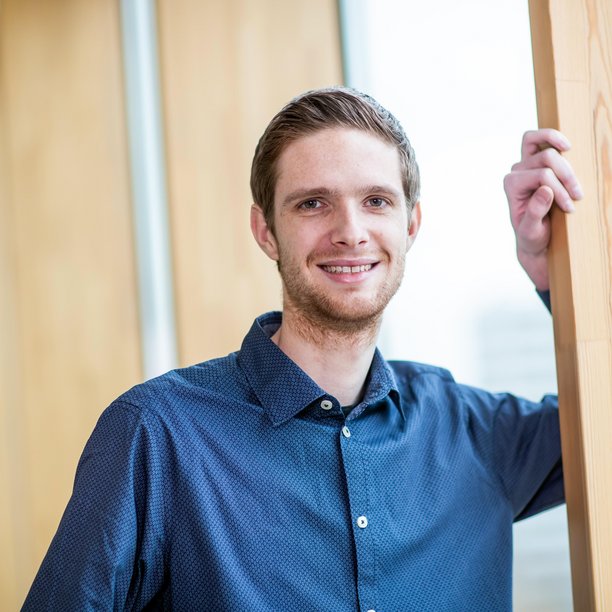This interview focuses on The Connected World. We talk to three key employees associated with the Centre for Wireless Technology, which specializes in new technologies that will provide power for and speed up communication. They are Professor Marion Matters-Kammerer (Integrated Circuits group), Assistant Professor Georgios Exarchakos (Electro-optical communication) and PhD candidate Robbert Schulpen (Electromagnetics).
What exciting research projects have you worked on during the past 12 months or so?
Marion: We developed the first wireless temperature sensor that uses radio waves as its power source. In other words, it doesn’t need a battery. In layman’s terms: you send energy wirelessly to a piece of silicon, which stores that energy briefly, uses it to measure temperature and then sends a value back. The science behind that simple statement is amazing: the chip is just 2 square millimeters in size and its circuitry includes an antenna. It sources energy from the radio waves in the wireless network to which it is connected. When enough energy has been accumulated, it activates, measures the temperature and sends the reading back to the router. This is only possible at very high frequencies. It will be used in smart buildings initially, but the same technology can also be used in payment systems, wireless identification systems and production engineering applications. The sensors only cost a few cents. This was a joint effort that involved the Electromagnetics and Signal Processing Systems group at TU/e, as well as the Centre for Wireless Technology. The Mixed-Signal Microelectronics group was responsible for the integrated circuits research.
Georgios: We succeeded in controlling the resources in a low-power network far more efficiently by developing an algorithm based on swarm intelligence. The algorithm leads to adaptive behavior based on trial and error; i.e. what works? And what doesn’t work? A simple concept that we see in nature and that will revolutionize many technological areas. On a similar note, we also developed an algorithm that identifies and protects the strongest nodes in a network. Important, because this means that the network itself becomes aware of the nodes that need to be protected. If you reverse the thought process, you can also develop an algorithm that can identify the minimum number of nodes you need to eliminate in order to destroy a network. Useful for military applications and responding to epidemics.
Robbert: We are still in the very early phases. The goal is to find a way of characterizing the dynamics of a millimeter wave channel by performing a range of measurements. Once you have the data, you can build models that allow you to predict aspects such as signal quality and the influence of moving users on the channel. The models can be used by businesses to answer questions like how many base stations are required in Eindhoven and where should they be located to ensure full coverage.
TU/e’s contribution in these areas is outstanding. Would you recommend TU/e to other academics looking for a research position?
Marion: Definitely. TU/e differs from many other universities in that it offers tenure tracks for assistant professors as the first position in an academic career. This gives young and talented scientists a clear perspective: they can follow a defined development route that leads to a full (associate) professorship. The Department of Electrical Engineering also treats its employees well and encourages teamwork. And that close link to industry means that funding is readily available.
Georgios: I came here from Greece and followed exactly that tenure track, so I thoroughly endorse Marion’s comment. I really enjoy the collaborative environment here and the connection to industry. Surprisingly enough, some of the companies we work with look further than business models and applications: they are also interested in pure research!
Robbert: I studied at TU/e, did my BSc and MSc here, so I know Eindhoven like the back of my hand. The city not only has a fantastic buzz, the university is also ideally situated with Brainport next door. New York was another possibility that I considered for my PhD, but the guarantee of funding made TU/e the better choice.


